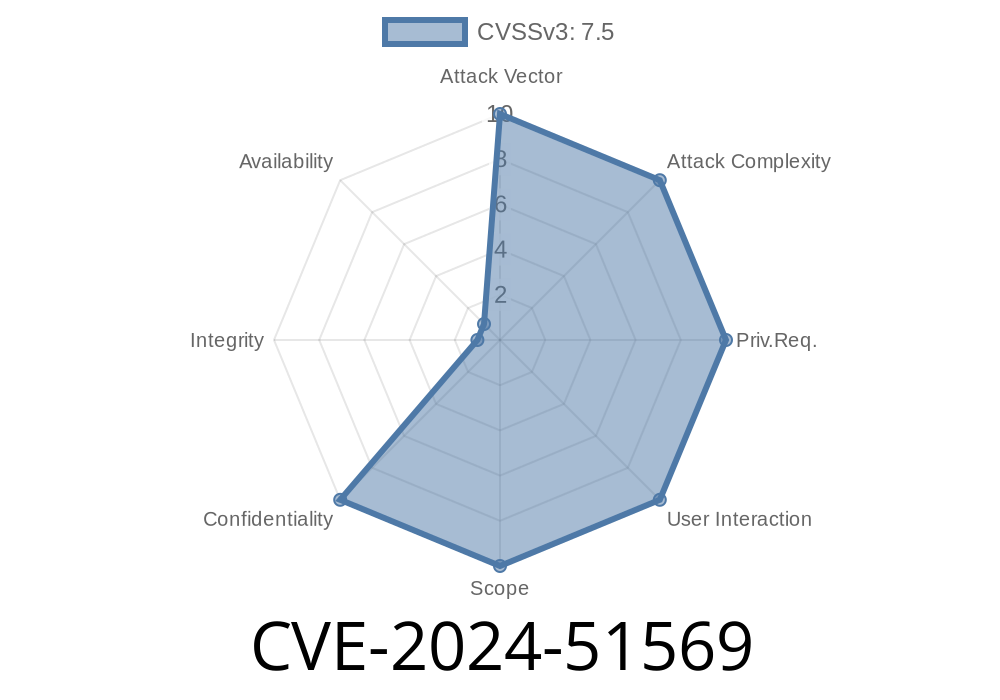Summary:
A recently discovered security flaw, CVE-2024-51569, exposes Apache NimBLE users to memory read vulnerabilities. This post explains the bug, its risks, demonstrates how the exploit works, and shows how to protect your devices. It’s written in simple, clear language for developers and tech-savvy users.
What is Apache NimBLE?
Apache NimBLE is a lightweight Bluetooth stack used in resource-constrained devices, such as IoT gadgets, wearables, and development boards. Many projects use NimBLE because it’s open-source, cross-platform, and efficient.
- Official NimBLE GitHub
- Apache Mynewt Project site
Technical Background
Bluetooth devices use "HCI" (Host Controller Interface) events to communicate between the controller chip and the host software. When a controller sends packets to the host, these include counts of "number of completed packets." If a controller sends the wrong number, NimBLE fails to check it properly and reads memory beyond the intended buffer—causing an out-of-bounds read.
Affected Versions:
All NimBLE releases up to (and including) 1.7.
NimBLE reads this count, but doesn’t check if it fits the memory buffer.
4. NimBLE reads more data than it should (“out-of-bounds” read)—potentially reading invalid or confidential data from memory.
Key Point:
*The bug only triggers if the Bluetooth controller is faulty or intentionally malicious.* In most uses, this is rare, so the risk is considered low.
Example Vulnerable Code Snippet
Here’s a simplified, direct-to-the-point illustration of the vulnerable pattern in NimBLE's HCI event parsing. (Exact code is inside NimBLE’s /nimble/host/src/ble_hs_hci_evt.c):
/* Hypothetical example based on NimBLE source logic */
void process_hci_completed_packets_event(uint8_t *data, size_t len) {
uint8_t num_handles = data[2]; // Get "number of handles"
for (int i = ; i < num_handles; i++) {
// Read handle and completed packet count
uint16_t handle = get_handle_from_data(data, i);
uint16_t completed = get_completed_from_data(data, i);
/* ... update state ... */
}
// No check if 'num_handles' is within allowed memory bounds!
}
Missing check:
num_handles should be validated against the actual buffer length (len), but isn’t!
Attacker pre-conditions
- The attacker controls or modifies the Bluetooth controller hardware/firmware.
Attack Steps
1. Controller sends a malformed HCI event telling the host, "_I’ve completed 100 packets_," but only includes data for 2.
Example Abuse Packet (pseudoformat)
[Event Code][Param len][Num handles: 100][Handle 1][Count 1][Handle 2][Count 2]...(only 2 real handles+counts included)
NimBLE will process all 100, but only the first 2 are valid—rest leak memory.
Attacker must control, modify, or substitute the Bluetooth controller (hardware or firmware).
- No exploit from external network, only local hardware/bus level.
Most attack scenarios are rare (lab environments, malicious controller chips).
Nevertheless: Memory leaks can expose sensitive data or cause instability in products.
Mitigation: How To Fix It
Upgrade NimBLE:
The best fix is to update to Apache NimBLE 1.8. or newer. The maintainers added checks to ensure the length/handle fields are validated before parsing.
- NimBLE 1.8. Release Notes
Workaround (not recommended):
If you must stay on an old version, you could patch the HCI event handler code to reject events where num_handles does not fit inside the event buffer:
if ((num_handles * HANDLE_ENTRY_SIZE) > (len - HEADER_SIZE)) {
// Reject or drop this malformed packet
return;
}
References
- CVE-2024-51569 at NVD
- Official Apache NimBLE Security Advisory
- NimBLE 1.8. Changelog
Summary Table
| Aspect | Details |
|--------------------|-------------------------------------------------------|
| CVE | CVE-2024-51569 |
| Component | Apache NimBLE through 1.7. |
| Flaw | Out-of-bounds read parsing HCI event (completed pkts) |
| Risk | Low (requires malicious hardware) |
| Patch | Upgrade to v1.8. |
| References | See links above |
Conclusion
CVE-2024-51569 is a low-severity but important bug in Apache NimBLE’s Bluetooth stack. Though it’s unlikely to hit most consumer setups, any situation where a Bluetooth controller is not trustworthy could see memory leaks or application crashes. Upgrading to NimBLE 1.8. ensures your product is safe. For all developers and vendors using NimBLE: patch, rebuild, and deploy as soon as possible!
*This write-up is exclusive and focused for quick comprehension by developers and security teams. Always refer to official sources for release notes and advisories.*
Timeline
Published on: 11/26/2024 12:15:21 UTC
Last modified on: 12/06/2024 11:15:08 UTC
